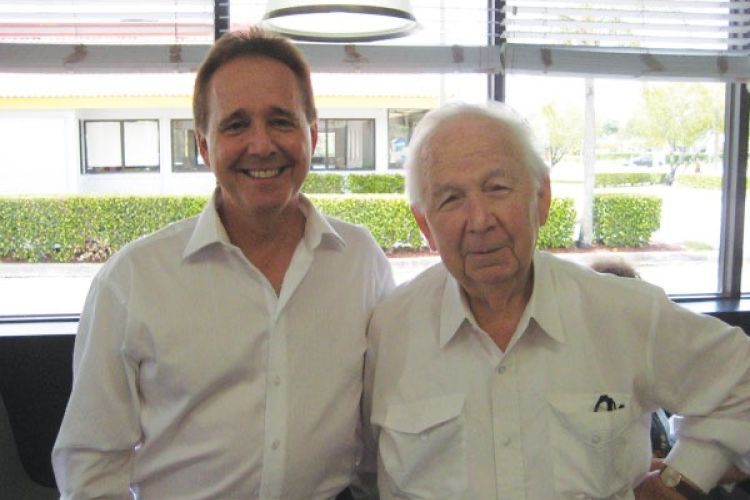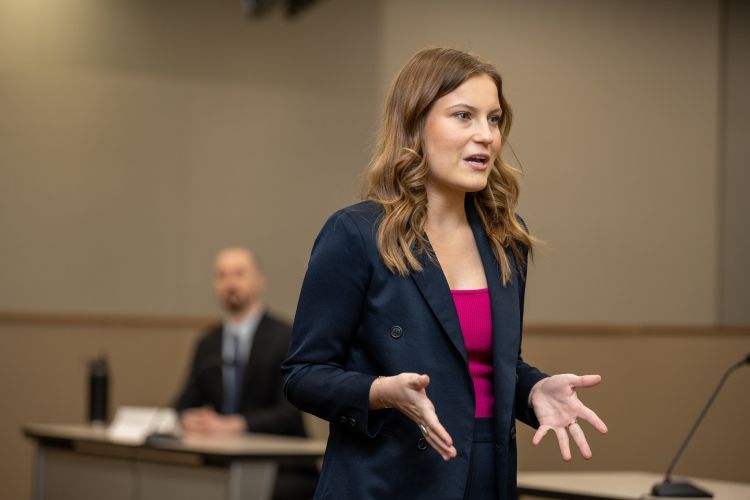Breadcrumb
McGeorge School of Law will soon be tied for offering the most Marijuana Law courses nationally

McGeorge School of Law will soon become the second law school in the United States to offer two different Marijuana Law courses. Beginning in spring 2023, Adjunct Professor Robert Baca will teach a brand-new course: The Practice and Business of Cannabis Law. Distinguished Professor Michael Vitiello will continue to teach a Marijuana Law Seminar, which he has taught since 2017.
Vitiello is a nationally-recognized expert on marijuana law. His course focuses on issues in marijuana law, criminal justice, cannabis policy, racial equality, and constitutional law. Baca’s course will focus on the business aspects of marijuana law.
“The cannabis industry continues to grow and develop so rapidly that sometimes it’s hard to keep up. Practicing law in the space, particularly helping operators start, run, and grow their companies, is both fascinating and frustrating because it really is ‘cutting edge’ law,” Baca said. “Lawyers in the space are helping shape an industry in real-time and it’s exciting for McGeorge to lead in such an opportunity in both California and nationally.”
Vitiello was inspired to split the Marijuana Law Seminar into two different course offerings after discovering that many students in the course wanted to focus on the business aspects of the cannabis industry.
“The more I thought about it, the more I realized that Marijuana Law is really at least two, maybe more, courses,” Vitiello said.
The only other law school in the U.S. with two distinct and different Marijuana Law courses is The Ohio State University Michael E. Moritz College of Law.
“Marijuana Law is a fast-growing industry; there was a need for another course, and no other law school besides Ohio State is doing this,” Vitiello said.
Only eight out of 57 ABA-accredited law schools located in medical-use only states offered courses on cannabis law or policy during the 2021-22 academic year, according to a survey by faculty at the Drug Enforcement and Policy Center at The Ohio State University. Nationwide, only 32 of the 143 law schools located in states that have legalized cannabis for either medical or adult-use offered courses on cannabis policy and law.
“California is known as the epicenter of Marijuana Law because of the size of the industry and the size of its illegal industry,” Vitiello said. “McGeorge is doing its part in training lawyers who want to do a business-oriented Marijuana Law practice.”
Marijuana Law is one of the most rapidly growing areas of the legal profession in the country, according to Vitiello. Cannabis laws and regulations vary in each state, making the legal landscape complex and difficult to navigate.
“Negotiating through a massive amount of regulation and compliance issues becomes a lucrative way to practice law,” Vitiello said.
Vitiello co-authored Cases and Material on Marijuana Law (West Academic Publishing) in 2019 with University of Michigan Law School Professors Howard Bromberg and Mark Osbeck. A copy of the book can be found in McGeorge’s Legal Studies Center. The casebook explains marijuana law from all perspectives, including federal, state, local, and international law. It also covers civil, criminal, and constitutional issues emerging from current marijuana law in depth.
The authors are working on a second edition of the book, which will be completed in 2023.
Vitiello is the faculty advisor for McGeorge’s Cannabis Law Society, a student organization that aims to reduce the stigma associated with cannabis by focusing on the laws and regulations that govern cannabis cultivation and use. Members have the opportunity to tour cultivation farms, meet individuals involved in cultivation, and network with attorneys who practice Marijuana Law.
For more information about McGeorge School of Law, visit our website.
Media Contact: Ashley Golledge, Director of Marketing and Communications, agolledge@pacific.edu, 916.325.4687.





